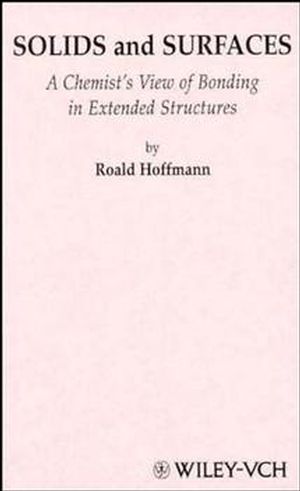Solids and Surfaces: A Chemist's View of Bonding in Extended StructuresISBN: 978-0-471-18710-3
Hardcover
152 pages
January 1991
 This is a Print-on-Demand title. It will be printed specifically to fill your order. Please allow an additional 10-15 days delivery time. The book is not returnable.
|
||||||
This unique book shows how chemistry and physics come together in
the solid state and on surfaces. Using a lively, graphic,
descriptive approach, it teaches chemists the language that is
necessary to understand the electronic structure of extended
systems. And, at the same time, it demonstrates how a chemical,
frontier-orbital, approach to solid state and surface bonding and
reactivity may be constructed.
The book begins with the language of crystal orbitals, band structures and densities of states. The tools for moving back from the highly delocalized orbitals of the solid are then built up in a transparent manner; they include decompositions of the densities of states and crystal orbital overlap populations. Using these tools, the book shapes a meeting ground between detailed quantum mechanical calculations and a chemical frontier orbital perspec- tive. Applications include a general picture of chemisorption, bond-breaking and making in the solid state, bonding in metals, the electronic structure of selected conducting and supercon- ducting structures, dissociation, migration and coupling on surfaces and the forces controlling deformation of extended systems.
The book begins with the language of crystal orbitals, band structures and densities of states. The tools for moving back from the highly delocalized orbitals of the solid are then built up in a transparent manner; they include decompositions of the densities of states and crystal orbital overlap populations. Using these tools, the book shapes a meeting ground between detailed quantum mechanical calculations and a chemical frontier orbital perspec- tive. Applications include a general picture of chemisorption, bond-breaking and making in the solid state, bonding in metals, the electronic structure of selected conducting and supercon- ducting structures, dissociation, migration and coupling on surfaces and the forces controlling deformation of extended systems.



